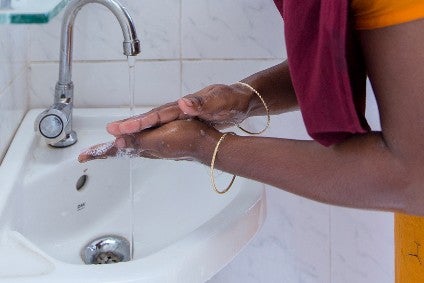
Swedish fashion retailer Lindex has launched a joint project in Bangladesh to increase access to clean drinking water and sanitation and improved hygiene in communities where textile workers live.
The collaboration with WaterAid will focus on the Gazipur area of Dhaka where many textile workers who produce clothes for Lindex live. In the area, few people have access to clean water and decent toilets.
The project will see facilities for clean water, hand washing, and proper toilets installed for residents and school students. It also includes training on sanitation and hygiene and raising awareness about reducing the spread of Covid-19. Additionally, the project aims to have a positive impact on the groundwater situation by advocating rainwater harvesting in textile factories connected to the area.
“Women are the ones who are most affected by lack of access to clean water and sanitation, and something as natural as menstruation becomes a limit for women’s opportunities to get an education and their ability to fulfill their potential,” explains Anna-Karin Dahlberg, head of sustainability at Lindex.
Lindex’s collaboration with WaterAid is part of the fashion company’s sustainability promise – to make a difference for future generations – where both women and water are focus areas.
The initiative builds on the success of Lindex’s and WaterAid’s previous joint project in Mirpur – another area in Dhaka where many textile workers who produce clothes for Lindex live. The three-year project was finalised in March 2021 and has exceeded all its goals on number of people reached.

US Tariffs are shifting - will you react or anticipate?
Don’t let policy changes catch you off guard. Stay proactive with real-time data and expert analysis.
By GlobalDataThrough the project, Lindex and WaterAid provided access to clean water and improved sanitation facilities for more than 6,500 people, and reached 7,000 with information on hygiene and sanitation. It has also resulted in the training of 100 young women to act as long-term change agents and organise information efforts related to health and hygiene in the community.
Anna Nilsdotter, chief executive at WaterAid Sweden, adds: “The project in Mirpur has changed the lives of so many women, not only through improved health but also by giving them new opportunities in life and hope for a better future. With this new project in Gazipur, even more women will get the same possibilities.”



